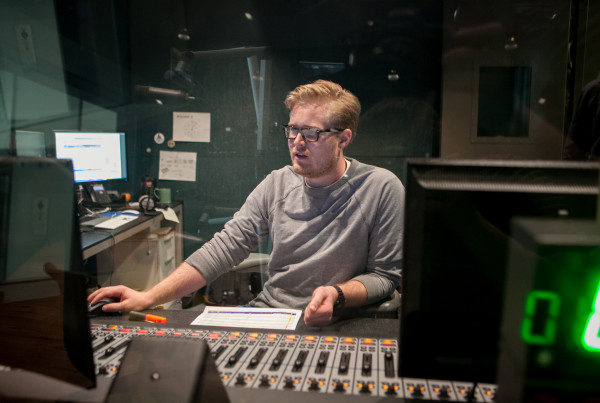From KERA:
Technology continues to transform operating rooms, and community colleges in north Texas that train surgical technologists must evolve, too.
For students that can adapt to ever-changing surgical methods and new high-tech tools, the odds of finding well-paying jobs in the field are good, with a projected growth of 15 percent in the next several years.
“As real as possible”
A dozen El Centro College students are busy prepping their patient for surgery: T. M. Robert, eyes wide open, lies motionless under a sterile sheet.
“This is one of our mannequins that we use,” Belinda Allen says. She’s the director of El Centro’s surgical technology program.
Clinical coordinator Aisha Leshi explains: “This is Trauma Man Bob.”
Trauma Man Bob hangs out here all the time. He’s in one of the college’s four mock operating rooms in downtown Dallas. Allen explains the day’s lesson: gowning, gloving and sterilizing.
“We make it as real as possible,” Allen says. “So when the students are in the role here, if they drop something and it’s non-sterile, they have to go and get a new one.”
It really is pristine, thanks to the steam sterilizer down the hall.
Student Matty Hutyra stands next to the dummy. She points out dozens of instruments.
“Sponge holding forceps. You know you have your lap bands here, your Raytek bands.” She continues the list. “This is a baby Richardson Retractor. And see these two, they’re the same thing, but they’re just smaller.”
A growing field
Leshi remembers when El Centro didn’t have the sterilizer or any of these instruments. When she graduated from here 27 years ago, Leshi only had pictures of the hand tools, until she began clinical training.
“My first appendicitis that I did was an open, abdominal appendicitis,” Leshi recalls. “Now, we’re taking out the appendix with laparoscopy — minimally invasive, so that they can recover quickly and go back to work.”
There’s lots of work for students in this field. Workforce Solutions of Greater Dallas projects 1,500 jobs this year alone. Nationally, the U.S. Bureau of Labor Statistics projects surgical tech jobs will grow rapidly — 15 percent through the year 2024.
Community colleges in Tarrant and Collin counties also offer such programs.
Surgical technologists are invaluable, says Dr. Sarah Oltmann, a surgeon and surgery instructor at UT Southwestern Medical Center.
“My main surgical technologist, Sandra, kind of knows what can be substituted in, if a particular piece is missing. She knows what’s like enough to be able to get by, and she also knows when it’s a hard stop. And so it’s a huge part of what allows me to be successful in what I do,” Oltmann says.
‘I like gross things’
Back in El Centro’s operating room, students check out the laparoscopy machine. Surgical technologists are responsible for keeping its tiny, state-of-the-art cameras and skinny wires working as they thread through a patient’s blood vessels.
About the only piece of surgical equipment not at El Centro is a robot. At more than $1 million, Belinda Allen says it’s too pricey.
“Every day, the robotic system is being used in more and more surgeries; also the minimally invasive versus the open procedures,” Allen says.
Many of these surgical technology students end up specializing in a field like obstetrics and gynecology, orthopedics or vascular surgery.
Student Amanda Scott hasn’t picked a specialty yet, but likes her job prospects no matter the focus. She says she can work anywhere in the country. And graduates with a two-year associate’s degree can quickly find jobs paying more than $40,000 a year.
“I want to be a surgical tech because I like gross things,” Scott says. “I love helping people and being in the background.”
Scott expects her new job will beat her current gig as a bartender.















